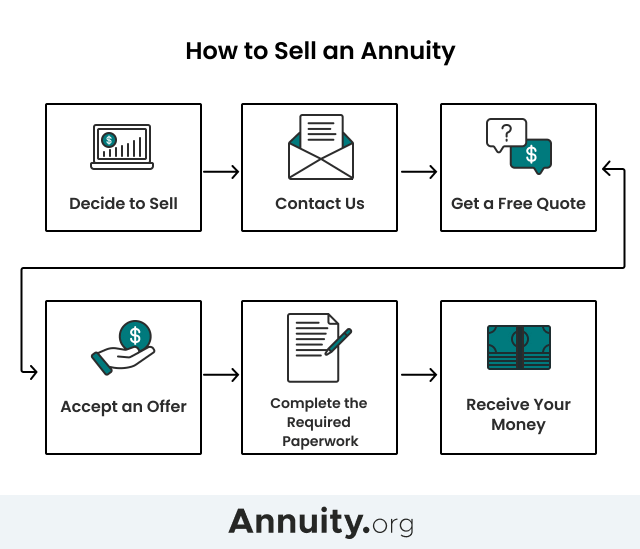Should a 70 year old buy an annuity?

Many financial advisors suggest that age 70 to 75 may be the best time to start an income rate because it can maximize your payout. A deferred income annuity typically requires only 5 percent to 10 percent of your savings, and it starts paying off later in life.
Is an annuity a good investment for an elderly person? Annuities can help seniors build tax-deferred savings to manage retirement costs such as health care and living costs. Immediate annuities tend to be the best annuities for seniors because they start paying out within 12 months of purchase.
What are the disadvantages of annuities?
What are the main disadvantages of annuities?
- Annuities can be complex.
- Your benefit may be limited.
- You can pay more in taxes.
- Expenses may increase.
- Guarantees have a warning.
- Inflation can erode the value of your annuity.
Can you lose your money in an annuity?
Owners cannot lose money in an immediate annuity, fixed annuity, fixed index annuity, deferred income annuity, long-term care annuity or Medicaid annuity. … You can lose money in a variable annuity. You can lose money in an index-linked annuity (buffer annuity).
Who should not buy an annuity?
You should not buy an annuity if social security or retirement benefits cover all of your regular expenses, you have below-average health, or you are looking for high risk in your investments. Take our quiz here to determine if an annuity makes sense to you.
At what age should you not buy an annuity?
The typical age limit is around 80. Many insurance companies will not allow you to buy an annuity with an income rider until you are 50 years or older.
When should you not buy an annuity?
Annuities work best when you spend a portion of your savings to buy the guaranteed income an annuity can provide. However, if buying an annuity would leave you without sufficient savings to cover unexpected expenses, then an income annuity may not be the right choice for you.
Who should not buy an annuity?
You should not buy an annuity if social security or retirement benefits cover all of your regular expenses, you have below-average health, or you are looking for high risk in your investments. Take our quiz here to determine if an annuity makes sense to you.
Who should not buy an annuity?
You should not buy an annuity if social security or retirement benefits cover all of your regular expenses, you have below-average health, or you are looking for high risk in your investments. Take our quiz here to determine if an annuity makes sense to you.
What is the disadvantage of an annuity?
Your benefit may be limited. When you buy an annuity, you collect the risk with all the others who buy annuities. The insurance company you buy the annuity from manages that risk and you pay a fee to limit your risk.
Can you lose your money in an annuity?
Owners cannot lose money in an immediate annuity, fixed annuity, fixed index annuity, deferred income annuity, long-term care annuity or Medicaid annuity. … You can lose money in a variable annuity. You can lose money in an index-linked annuity (buffer annuity).
How much does it cost to sell a structured settlement?

The lump sum you receive from the buyer or factoring company may be as low as 50 percent of your total future payments, but will typically be between 60 and 80 percent. So if you get $ 1,000 a month through your structured settlement, you can sell each payment for anywhere from $ 500 to $ 800.
How are structured settlements paid out? Structured settlement payment over time as a stream of tax-free payments rather than one lump sum. You can “cash in” your future structured settlement payments by selling them to a discounted factoring company if you need instant cash.
What percentage does JG Wentworth take?
Typically, JG Wentworth’s fees range from 9% to 15% of the total value of the asset. Its representatives provide free quotes over the phone to help you assess the cost of redeeming your structured settlement, winnings or annuity.
How do companies like JG Wentworth make money?
How much J.G. Wentworth pays for structured settlements. J.G. Wentworth buys structured settlements at a discount rate, which is the way they earn, so your payment will be less than the full value of your structured settlement.
Is JG Wentworth predatory?
Some customers thought JG Wentworth was a predator. They stated that they got a terrible deal when they sold their annuities and they felt it was a ripoff. In addition to this, JG Wentworth uses intrusive marketing techniques, which has caused some customers to post a discontinuation.
Can a structured settlement be changed?
Once the terms of the annuity are set, they cannot be changed. An immediate lump sum can also be set aside to cover legal fees or to fund a specified trust.
How do you get out of a structured settlement?
If you have a structured settlement where you receive your personal injury or settlement lawsuit over time, you may be able to “pay out” the settlement. To do this, you sell some or all of your future payments in return for cash now.
Who owns the annuity in a structured settlement?
The majority of structured settlement interest rates are owned by qualified transfer companies, not the recipients of the structured settlement. Some structured settlement interest rates used to finance taxable damages or attorneys’ fees are performed in the form of an unqualified assignment.
How much do structured settlement brokers charge?
How much do buyers charge for structured settlement? Depending on how a structured settlement works, buyers typically charge from nine percent to 18 percent of the purchase price when they purchase your structured settlement.
How much does a structured settlement cost?
How much does it cost to sell a structured settlement? Selling a structured settlement is not a dollar-for-dollar exchange. The purchasing company will charge a discount rate, which is typically between 9 and 18 percent of the value of the settlement.
Are structured settlements bad?
A major disadvantage of a structured settlement is that it can jeopardize the recipient’s eligibility for public services, which can be particularly problematic when the person’s medical needs are covered by Medicaid rather than private health insurance.
What happens when you sell your structured settlement?
You can sell your structured settlement to a factoring company for immediate cash. Depending on the terms of your structured settlement, you may also be able to sell survivor services. …
Can you break a structured settlement?
There is no way to reverse a structured settlement agreement and receive a lump sum. The good news, though, is that sellers with certain qualified structured settlements can transfer the rights to their future structured settlement payments in exchange for funds now.
How does selling a structured settlement work?
When the defendant and plaintiff in a lawsuit agree to settle a claim with a structured settlement, the parties negotiate a cash amount to be paid by the defendant in exchange for the plaintiff dropping the case. The money is distributed as a series of periodic payments, typically financed through an annuity.
Are Structured Settlements tax-free?

Income tax exemption: Structured settlement payments – including growth – are 100% income tax free. While lump sum cash settlements are tax-free in the event of physical damage if the money is invested in a traditional investment, any growth is subject to income tax.
Is a structured settlement considered income? Structured settlement payments do not count as income for tax purposes, even when the structured settlement bears interest over time.
Is a structured settlement a good idea?
Structured settlements provide plaintiffs with security for payments over a fixed period. However, one-off payments may be better suited to cases involving minors, as they allow for long-term investment, or those suffering from a disabling injury that will require future medical expenses.
Are Structured Settlements bad?
A major disadvantage of a structured settlement is that it can jeopardize the recipient’s eligibility for public services, which can be particularly problematic when the person’s medical needs are covered by Medicaid rather than private health insurance.
What is the benefit of a structured settlement?
Structured settlements are good options for many different cases, such as personal injury cases, mass tort and more. They often help speed up the conclusion of a lawsuit. A structured settlement provides a stable lifelong income with built-in budgeting and minimal taxation.
What settlements are tax-free?
If your settlement is non-taxable, legal fees will not affect your taxable income. Accident and personal injury cases, such as slip-and-fall or work injury compensation, is excluded. In the case of taxable settlements, however, you can owe tax on the entire settlement, even when the defendant pays your lawyer directly.
Are settlement checks tax free?
The majority of personal injury statements are tax-free. This means that unless you are eligible for an exemption, you will not have to pay tax on your settlement check that you would pay with ordinary income. The State of California does not impose additional taxes beyond those of the IRS.
What type of settlement is not taxable?
Pain and suffering, along with emotional distress, directly caused by a physical injury or suffering from an accident, are not taxable in a California personal injury settlement.
How do settlements get taxed?
Taxes depend on â € œthe origin of the claim.â € Settlements and judgments are taxed according to the origin of your claim. If you sue a competing company for lost profits, a settlement will be lost profits, taxed as ordinary income.
What percentage of a settlement is taxed?
Proceeds from litigation are usually taxed as ordinary income – they are not subject to a special tax rate just because the money comes as a result of litigation. The tax rate depends on your tax class. From 2018, you will be taxed at a rate of 24 percent of income over $ 82,500 if you are single.
What types of settlements are taxable?
As a general rule, these types of settlement payments are deductible.
- Punitive damages.
- Unlawful death.
- Emotional distress.
- Settlement interest.
Is a structured settlement the same as an annuity?

Structured settlements are awarded to plaintiffs in litigation. Annuities can be purchased by private individuals. Annuity sales do not require court approval if you have purchased or inherited the annuity. It is often faster to sell annuity payments than structured settlement payments.
How does a structured settlement rate work? A structured settlement interest rate (“structured settlement”) allows a creditor to receive all or part of a personal injury, wrongful death or work compensation in a series of income tax-free periodic payments.
Who owns the annuity in a structured settlement?
The majority of structured settlement interest rates are owned by qualified transfer companies, not the recipients of the structured settlement. Some structured settlement interest rates used to finance taxable damages or attorneys’ fees are performed in the form of an unqualified assignment.
Is a structured settlement an annuity?
Structured settlement interest rates are similar to either an immediate annuity or a deferred annuity. The structured settlement payments are guaranteed and irrevocable; however, annuity settlement options may differ from typical income contracts.
What is considered a structured settlement?
A structured settlement permitted by the U.S. Congress since 1982 is: A completely voluntary agreement between the injured victim and the defendant. During a structured settlement, an injured victim does not receive compensation for his damages in one lump sum.
Who gets a structured settlement?
Structured settlements are periodic payments to a plaintiff who wins or decides a personal injury case. Instead of receiving a lump sum for compensation, the injured party can receive a series of payments made over time.
What is structured settlement and how does it work?
A structured settlement is a stream of payments issued to a plaintiff after a lawsuit or a lawsuit. The settlement is intended to pay for damages or damages that provide financial security over time instead of a lump sum in cash.
Is a structured settlement annuity taxable?
Under a structured solution, all future payments are completely free of: federal and state income taxes; Taxes on interest, dividends and capital gains; and. The alternative minimum tax (AMT).
How do I know if my annuity is taxable?
Do you pay tax on annuities? You do not owe income tax on your annuity until you withdraw money or start receiving payments. In the event of a withdrawal, the money will be taxed as income if you have purchased the annuity with pre-tax funds. If you bought the annuity with funds after tax, you only had to pay tax on the earnings.
Is a structured settlement an annuity?
Structured settlement interest rates are similar to either an immediate annuity or a deferred annuity. The structured settlement payments are guaranteed and irrevocable; however, annuity settlement options may differ from typical income contracts.
Is JG Wentworth Good?

Is JG Wentworth legal? Yes, this is a legal financial services company, founded in 1991. JG Wentworth offers the purchase of structured payment of payments, debt restructuring and the purchase of annuities. The company has an accredited BBB profile with an A + rating.
What percentage does JG Wentworth keep? Typically, JG Wentworth’s fees range from 9% to 15% of the total value of the asset. Its representatives provide free quotes over the phone to help you assess the cost of redeeming your structured settlement, winnings or annuity.
What does JG Wentworth actually do?
J.G. Wentworth Company is a US financial company that buys structured settlements, annuities and lottery payments. They also offer debt consolidation.
Is JG Wentworth a ripoff?
Is JG Wentworth legitimate? JG Wentworth is a reputable, reliable one-time provider of annuity payments or structured settlement payments. It offers free and no obligation offers.
How do companies like JG Wentworth make money?
How much J.G. Wentworth pays for structured settlements. J.G. Wentworth buys structured settlements at a discount rate, which is the way they earn, so your payment will be less than the full value of your structured settlement.


